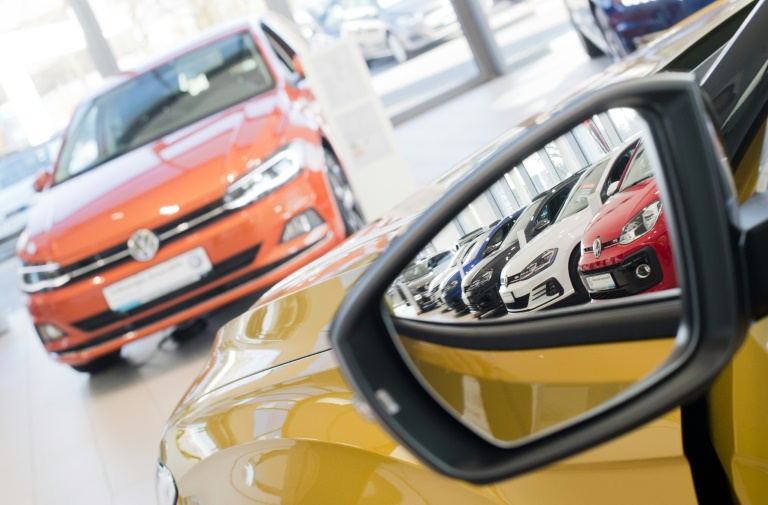VW said in a statement it had booked an 11.4-billion-euro ($14 billion) bottom line last year, more than double the 5.1 billion euros earned in 2016.
The last time the auto giant achieved a result around 11 billion euros was in 2014, the year before it admitted to manipulating 11 million diesel vehicles worldwide to fool regulators’ emissions tests.
Since then it has paid out more than 20 billion euros for buybacks, fines and compensation.
Some 3.2 billion in one-off costs last year — “related exclusively to charges… due to the diesel issue,” the firm said — weighed on operating profits, which nevertheless increased 94.5 percent to 13.8 billion euros.
Record sales of some 10.74 million vehicles worldwide helped the group based in Wolfsburg, Germany to boost revenues 6.2 percent year-on-year, to 230.7 billion euros.
VW has not left the “diesel issue” in the dust, as it appears among the group’s top four “challenges” for the year ahead alongside “the economic situation, increasing competition (and) exchange rate volatility.”
In the European Union, the group pointed to a “new, more time-consuming test procedure for determining pollutant and carbon dioxide emissions as well as fuel consumption” that could weigh on performance.
Meanwhile in home market Germany, a court case next week could open the way for cities to ban older vehicles powered with the fuel, while calls are growing for auto firms to refit the most polluting diesel cars.
But none of the potential costs are likely to match the swingeing financial blows inflicted in the months and years after the cheating was uncovered, most notably in the United States.
A spokesman for Volkswagen also said Friday that the supervisory board had responded to outrage over its testing the health effects of diesel exhausts on live monkeys and humans, ordering “a new code of ethical and moral guidelines” be drawn up.
– ‘Expensive transformation’ –
Despite last year’s strong performance, “looking ahead, we — like the entire industry — are facing major challenges and radical change,” chief executive Matthias Mueller said.

The fallout from the diesel scandal is not quite behind Volkswagen yet
In the wake of the diesel scandal, VW has promised deep reforms across its sprawling 12-brand empire, which ranges from Lamborghini, Audi and Porsche to Skoda, Seat and its own branded cars.
Like other German carmakers, it plans a slew of new electric and hybrid models over the coming years and is scrambling to adapt to changes to the way people get around, such as car-sharing and ride-hailing apps or autonomous driving.
“Shaping the Group’s transformation will not only require a great deal of time and energy; it will also be very expensive. This is why we must continue to keep our expenditure under tight control,” finance director Frank Witter said.
In 2018, the group aims to increase revenue by “as much as 5.0 percent” compared with last year.
It will also target an operating profit margin before special items of between 6.5 and 7.5 percent, compared with 7.4 percent last year.
Volkswagen group shares were down 0.9 percent in late Frankfurt trading, underperforming a DAX index of blue-chip shares slightly up on the day.
Download our app and read this and other great stories on the move. Available for Android and iOS.